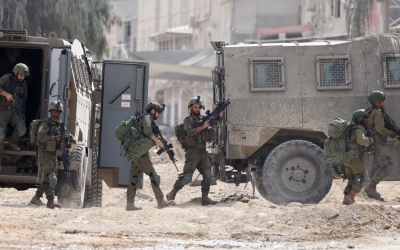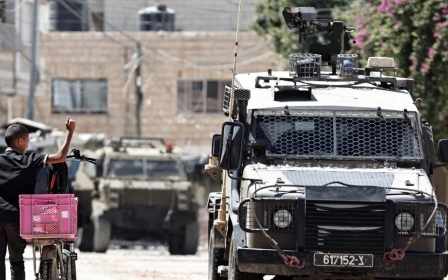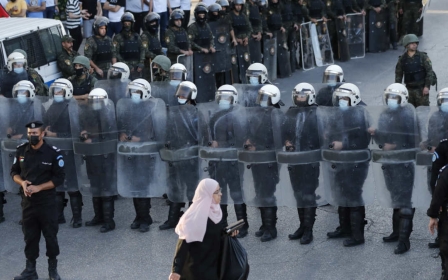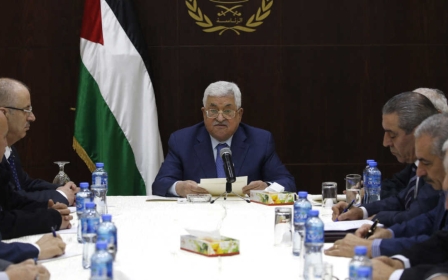US largely silent on Israel's West Bank assault as ally Jordan gets rattled
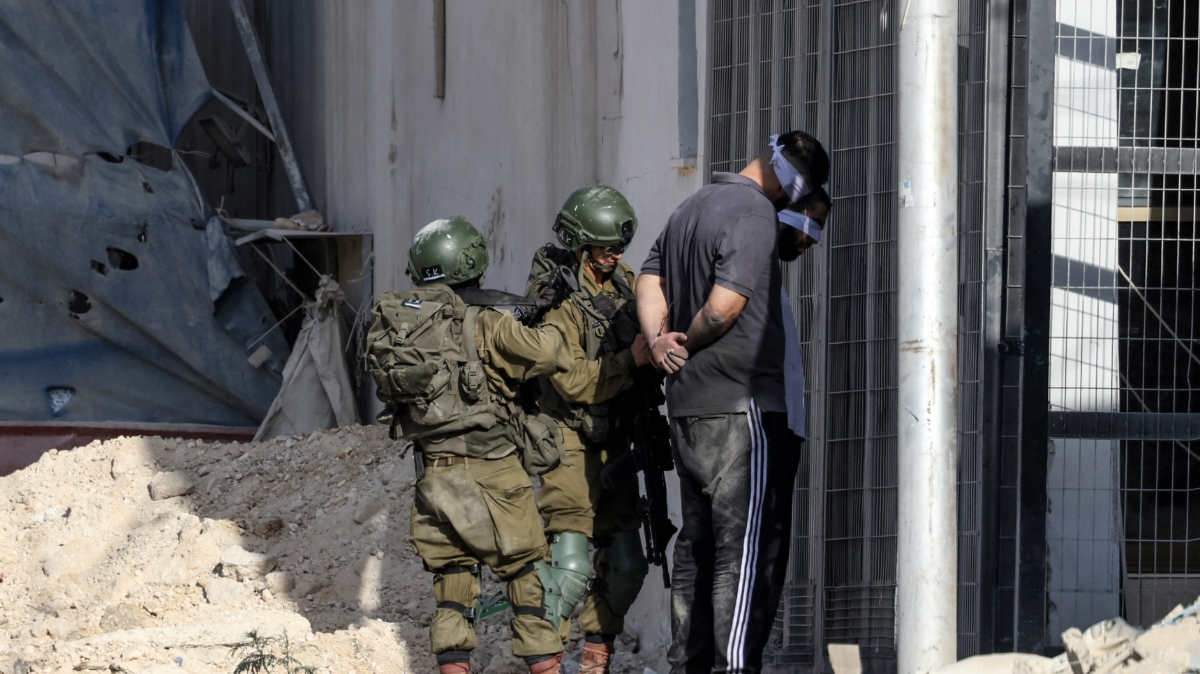
The US said it was seeking clarity on Israel’s objectives after its ally launched an offensive in the occupied West Bank which Palestinian and Israeli media said was the largest such attack since the Second Intifada.
“We are in touch with Israeli officials to learn more about the operation,” a national security council spokesperson told Middle East Eye.
“The United States supports Israel’s right to defend itself against threats to its security. At the same time, they must do so in a way that limits civilian casualties and damage to civilian infrastructure”.
Israeli troops landed in parts of the northern West Bank in military helicopters and large convoys of armoured vehicles, attacking three cities - Jenin, Tulkarm and Tubas.
Despite the breadth and magnitude of the offensive mirroring Israeli military operations during the Palestinian uprising of the early 2000s, the Biden administration has so far held off on publicly addressing the matter, outside of responding to journalists.
New MEE newsletter: Jerusalem Dispatch
Sign up to get the latest insights and analysis on Israel-Palestine, alongside Turkey Unpacked and other MEE newsletters
"The number of military vehicles storming Jenin is very large," Shatha Sabagh, a Jenin camp resident, told MEE.
"The three main hospitals are besieged and all the streets leading to the city are closed with dirt barriers. We have not witnessed an incursion this extensive for a long time, and it seems that it will continue for several days.”
In a move unrelated to Israel's actions, the US announced new sanctions against an Israeli settler group in the occupied West Bank on Wednesday. The group, Hashomer Yosh, has received funds from the Israeli government and fundraised in the US.
A State Department spokesperson told MEE that Washington recognises "Israel’s very real security needs, which includes countering terrorist activity in the West Bank".
"At the same time, we continue to insist that Israeli authorities take measures to protect all civilians from harm," the spokesperson said.
"We also remain deeply concerned about maintaining stability in the West Bank and continue to urge Israel to take all feasible measures to protect civilian lives in the West Bank – just as we urge them to do in Gaza."
Jordan on edge
The offensive comes as Gaza ceasefire talks drag on, with diplomats expressing little optimism.
The US and its Arab partners have been concerned about a war between Israel and Iran. But they also fear fighting in Gaza could spill into the occupied West Bank.
The occupied West Bank is the home of the widely unpopular and US-backed Palestinian Authority. It also neighbours Jordan, a key US ally with a majority of its population of Palestinian descent.
Israel has broadened its war across the region, assassinating Hamas political chief Ismail Haniyeh in Tehran and senior Hezbollah commander Fuad Shukr in Beirut. But its decision to launch a wide-scale offensive in the occupied West Bank could raise fears that Israel is entering a new conflict that will be harder to contain.
Israel’s Foreign Minister Israel Katz raised the spectre of forced displacement in the occupied West Bank, saying that where “intense combat” is taking place Israel should impose “temporary evacuation from one neighbourhood to another”.
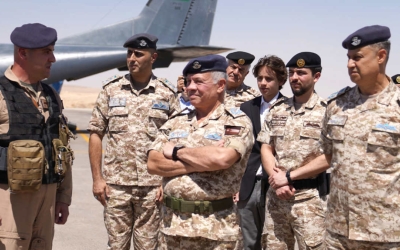
Katz’s comments drew a quick rebuke from Josep Borrell, the EU’s chief diplomat.
“The Israeli major military operation in the occupied West Bank must not constitute the premises of a war extension from Gaza, including full-scale destruction,” he said. “The parallel drawn by Minister Katz, especially on evacuating Palestinian residents, threatens to fuel further instability."
A former senior Jordanian official speaking to MEE on condition of anonymity told MEE that Israel’s offensive and Katz’s comments were “the type of nightmare scenario the kingdom has been on the lookout for”.
Jordan’s Foreign Minister Ayman Safadi condemned “the radicalism of this Israeli government” on X.
"Israel's expansion of its war against Palestinians in the occupied WB is a dangerous escalation that must be stopped,” he added.
Jordan is a close US ally heavily dependent on American aid and security assistance. The Hashemite Kingdom has seen massive protests, with demonstrators calling on King Abdullah II to revoke the country’s peace treaty with Israel.
MEE reached out to the State Department for comment on the raid but did not receive a response by the time of publication.
'Hospitals surrounded'
The Palestinian Red Crescent said Israeli forces killed 10 people and wounded 22 in the offensive. Its West Bank chief, Younes al-Khatib, said ambulances came under Israeli fire and one staff member was hit.
Stephane Dujarric, spokesperson for UN secretary general Antonio Guterres, said Israeli operations took place "in close proximity to four hospitals" and at least some "have been surrounded", affecting the movement of medical teams.
The Israeli military said it killed at least nine Palestinian fighters and detained another five. It said it carried out at least two drone strikes, which were rare in the occupied West Bank before the Hamas-led attacks on 7 October, but have become more common after Israel’s invasion of Gaza.
In targeting Jenin and Tulkarm, Israel has hit two growing bastions of Palestinian armed resistance to Israel’s occupation. Near-daily Israeli military incursions and larger operations have been unable to stamp out the movements.
Palestinian armed groups in the targeted cities, including the local chapters of Hamas, Islamic Jihad and Fatah, said their members were confronting the Israeli military, including detonating explosive devices against troops.
News outlet Israel Hayom described fighting in the camps between soldiers and Palestinians as "heavy and difficult".
Middle East Eye delivers independent and unrivalled coverage and analysis of the Middle East, North Africa and beyond. To learn more about republishing this content and the associated fees, please fill out this form. More about MEE can be found here.


